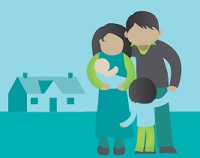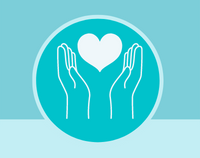CHANGES TO SUPPORT SERVICES FOR PEOPLE SEEKING ASYLUM |
|
Program Partners Refugee Council of Australia Red Cross Australia
|
The foundational principle of the campaign Dignity NOT Destitution is the belief that no person lawfully residing in Australia should be forced into destitution through the removal of access to financial and housing supports.
Up to 12,000 people seeking asylum in Australia may be at risk of losing core services and financial support due to Government changes in the Status Resolution Support Services (SRSS). Charities are already struggling to support destitute asylum seekers, but this level of destitution will be unprecedented. Read about why this is a deep concern for people seeking asylum as well as Churches and Charities. You CAN take action to support. BackgroundUp to 12,000 people seeking asylum in Australia may be at risk of losing core services and financial support due to Government changes in the Status Resolution Support Services (SRSS). The SRSS is a regular payment to help with basic living costs for those who live in Australia and are waiting for a decision about their immigration status. The current SRSS program has different levels of support (‘bands’), depending on the circumstances of the person on the program. In the past 6 months this program has been drastically reduced leaving many people with no form of financial or service assistance. Charities and food banks around the country have reported a significant increase in the presentation of people seeking asylum who are destitute as a result of the reduction of services. The Red Cross who has been a provider of services for asylum seekers for 25 years and is the largest provider in the country of SRSS has not had its contract renewed. There are fears that the number of people who will become destitute is only going to rise placing extraordinary pressure on charities and welfare agencies around Australia. ACRT will join the Refugee Council of Australia, the ASRC and others to campaign for the restoration of key support services for asylum seekers in the belief that; No person lawfully residing in Australia should be forced into destitution through the removal of access to financial and housing supports. Currently, there is no agency in Australia funded by Government to work with this specific group of people. They are surviving on emergency handouts from a range of charities, and living with friends or community members, often in vulnerable or unstable conditions. |
|
Why are people being removed from basic financial supports?There are two main categories of people who have been removed from financial assistance after seeking Australia’s Protection. The first situation is people who have had their financial, casework and/or counselling support cancelled due to a range of reasons which may include:
|
||
Why is this a challenge?People who seek asylum in Australia often have family left behind who they are desperately worried about. Although the allocation of 89% of a standard Centrelink payment is not much, there are times when people support each other to save as much as they can for their families who may be in desperate circumstances. For the Australian Government to tell them what to do with their own money and then punish them if they do support family overseas, is undignified and potentially a breach of privacy. Being able to work is often a great desire for asylum seekers and refugees. Working not only brings financial benefits but has significant social capital and can improve the self-confidence of a person living in a new culture. However, there are many challenges for newly arrived individuals in gaining employment that go beyond a simple assessment of being ‘job ready’ by a generalist employment service. Some of these challenges include a lack of recognition by many employers of work experience overseas. Without Australian based work experience many people find it difficult to secure employment. A lack of proficient language skills, bias or discrimination on racial or religious grounds or a lack of understanding of the Bridging Visa system can all contribute to an inability to secure employment. Whilst a person may be considered to be ‘job ready’ by a generalist employment service, securing employment is a whole other challenge. Removing people from financial support merely because they are considered ‘job ready’ can mean a person will be destitute for an extended time before securing employment to support themselves and their family. Furthermore, the compounding stressors of being destitute can further prevent a person from securing employment due to impacts on their mental health. The second group are people whose claim for protection has been considered ‘finally determined’ by Home Affairs. This means they have not been recognised as a refugee. The policy of removing the financial means to live from this group of people has a long history, having been in place for many years. Home Affairs considers a person finally determined when:
|
||
Why are we concerned about people being removed from SRSS?The situations that lead to people being removed from SRSS and therefore all financial supports mean people can be destitute in the community for months at a time, or even years before their situation is resolved. It is predicted that overall in the so called ‘legacy caseload’ there could be up to 12,000 people who will be removed from financial assistance over the coming 3 years. This level of destitution for asylum seekers is unprecedented and will bring considerable challenges for support and advocacy. Much of the burden will fall on faith based agencies, churches and charities to try to support. The Australian Christian Churches Taskforce disagrees with this policy and believes that Government should not be removing essential supports whilst people still have legal status in Australia. Furthermore, the Government should not be dictating the personal and lawful affairs of asylum seekers people seeking asylum who are already in a distressful situation including punishing them for their personal decisions. However, we are also aware that creating change may take some time. In the meantime we are concerned that these people do find a safe place to live and basic supports. The ACRT campaign #dignitynotdestitution will focus on advocacy to change the policy but also encouraging individuals and churches to host asylum seekers who may find themselves destitute until their situation changes. Whilst we do not consider that the churches and charities should have to fill the gap of this cruel policy, we also recognise that we cannot stand aside and allow people to become destitute in our own community. |
||
Evidence base #dignitynotdestitutionLack of income raises immediate concerns for any person in the community. The result of destitution can include including homelessness, poor physical and mental health and nutrition, as well as social isolation. At a crucial time where a person who has sought protection is trying to deal with the trauma of their flight from their home country and the uncertainty of a safe future, the compounding impact of destitution can be devastating. The impact of destitution on asylum seekers health, welfare and capacity to participate in their immigration process was acknowledged by the then Department of Immigration, when the forerunner of the SRSS program (the Community Care Pilot) was first created in 2009. When health and welfare issues are stabilised, clients are better able to think clearly, exercise choice and participate in resolution of their immigration status. A UK study on the nature of coping with destitution notes that even when people seeking asylum can find ways to support themselves outside of formal employment, many of the relationships formed or transactions negotiated are ultimately unequal in power and therefore dis-empowering and potentially harmful. “Some relationships are overtly transactional, with destitute asylum seekers providing childcare, cooking and/or housework, and sometimes sex, in exchange for meals, cash, shelter, or other daily necessities”. In Australia a number of agencies who work with those facing destitution also note that the context is precarious and can involve exploitation, violence and abuse on a range of levels. A Hotham Mission study on asylum homelessness noted: “Their [asylum seekers'] unfamiliarity with the service system and Australian culture makes them especially vulnerable to exploitation by unregulated crisis accommodation facilities and unscrupulous tenants residing there. Associated issues such as violence, racial intimidation and abuse or theft can further traumatise asylum seekers with vulnerabilities.” If the Government really is interested in asylum seekers resolving their immigration status as quickly as possible, forcing people into destitution is analogous to this aim. As the Community Care pilot found in 2009, stable health and subsistence for asylum seekers is the best way to achieve an expedient resolution of immigrations status whilst providing the dignity that all people deserve. |
||
| |
||
|
Connect with us FOLLOW THE TASKFORCE ON SOCIAL MEDIA FACEBOOK and TWITTER |
|
|
CONTACT US Telephone: (02) 9299 2215 Address: Locked Bag Q199, QVB NSW 1230 This email address is being protected from spambots. You need JavaScript enabled to view it. |
SHARE OUR VISION FOR A COMMUNITY SPONSORSHIP SCHEME IN AUSTRALIA |
 |
|
|
January 2022 New program commencing July 2022Thank you to the church groups and individual Australians across the country who rallied to help trail-blaze this new approach by signing up to be part of the Group Mentorship Program for newly arrived refugees. Read more For more information about joining with the groups involved in a new era of refugee protection in Australia, contact Community Refugee Sponsorship Australia (CRSA). |
|
 |
July 2021 The Initiative has now become an incorporated Australian charity operating under the new name of ‘Community Refugee Sponsorship Australia’ (CRSA). The new organisation has launched their website: www.refugeesponsorship.org.au The CRSA website has a short video highlighting the great work that local refugee mentor groups and mentees have been doing over the last 9 months under the pilot Group Mentorship Program, a precursor to a future sponsorship program. View it here. CRSA will be running the Group Mentorship Program again in 2021. This will involve mobilising and training more local groups of volunteers around the country and then linking them with refugees in Australia in need of additional settlement support. CRSA will host online public information sessions in July and August 2021, with the application process to join the program opening in August. Information on the New Program Intake – Public Information Sessions can be found here. |
| Background: | |
|
Amnesty International Refugee Council Save the Children Welcome to Australia
|
From Lisa Button,Director of the Community Refugee Sponsorship InitiativeI am delighted to be able to share with you the latest publication of the Community Refugee Sponsorship Initiative (CRSI): A New Model for Community Refugee Sponsorship in Australia. This is our most comprehensive policy paper yet and is inspired by the Canadian sponsorship scheme which has seen more than 300,000 refugees welcomed and settled in Canada in the last 40 years through sponsorship by community groups (including faith groups, sporting clubs, universities and workplaces) in addition to those settled under the government-funded resettlement program. As the name suggests, this paper outlines in detail CRSI’s vision for a future community sponsorship scheme in Australia and contains some useful diagrams and a helpful 12-point ‘Key Features’ section at the back. Having just attended and hosted a number of briefings last week in Melbourne and Canberra with Canadian and UK colleagues from the Global Refugee Sponsorship Initiative, my CRSI colleagues and I feel confident that a community sponsorship scheme could be established in Australia in the near future and could grow to become a permanent feature of an enhanced Australian response to global forced migration. Such a scheme could enjoy support across the political spectrum by offering a range of benefits to people fleeing persecution as well as to sponsoring communities and Australian society in general. Lisa Button Director, Community Refugee Sponsorship Initiative |
| |
|
|
Connect with us FOLLOW THE TASKFORCE ON SOCIAL MEDIA FACEBOOK |
|
|
CONTACT US Telephone: (02) 9299 2215 Address: Locked Bag Q199, QVB NSW 1230 This email address is being protected from spambots. You need JavaScript enabled to view it. |
YOU CAN HELP! |
 |
The Refugee Council of Australia is collating information on how the new detention visiting procedures are impacting on being able to visit detainees. Your experiences can help advocate for better visiting experiences. Use the feedback form on the RCOA website to document your experiences of detention visiting, so we can build an evidence base to advocate for more compassionate procedures. |
|
Program Partners Refugee Council |
|
| |
|
|
Connect with us FOLLOW THE TASKFORCE ON SOCIAL MEDIA FACEBOOK |
|
|
CONTACT US Telephone: (02) 9299 2215 Address: Locked Bag Q199, QVB NSW 1230 This email address is being protected from spambots. You need JavaScript enabled to view it. |
ASSISTANCE FOR VULNERABLE GROUPS UNABLE TO ACCESS AUSTRALIAN GOVERNMENT SUPPORT |
| |
Statement of Purpose The National Council of Churches in Australia (NCCA) supports the lives of refugees and people seeking asylum in Australia through the advocacy of the Australian Churches Refugee Taskforce (ACRT). NCCA wishes to assist people seeking asylum and refugees to live in dignity in Australia as independent individuals living their lives to the fullest (John 10:10) and sharing their traditions, skills and talents with us all.
|
|
|
Vision The NCCA has a Christian vision of compassion, generosity and hospitality for people seeking asylum and refugees in Australia that guides the advocacy work of the ACRT and the establishment of the Refugee Support Grant Fund. In response to limited resources available for community organisations working with people seeking asylum, waiting on refugee status determination and appeals and with refugees settling as new residents, the Refugee Support Fund will make available grants to enable assistance for these vulnerable groups that are unable to access Australian Government support and assistance or can only access limited government-funded programs and services that meet their needs. A key principle is that every individual seeking protection and safety has an opportunity to live with dignity and be assisted to influence the decisions which shape their life in Australia. |
|
GUIDELINES (currently under review) Applicants should base their proposal for funding on the vision and guidelines as outlined.
|
|
 |
APPLICATION FORM (currently under review) To be submitted to the NCCA Ltd Board of Directors Please complete and return electronically to This email address is being protected from spambots. You need JavaScript enabled to view it. Next round date: TBA.
|
|
ENQUIRIES All enquiries and applications should be directed to: General Secretary National Council of Churches in Australia Email: This email address is being protected from spambots. You need JavaScript enabled to view it. |
|
| |
|
|
Connect with us FOLLOW THE TASKFORCE ON SOCIAL MEDIA FACEBOOK |
|
|
CONTACT US Telephone: (02) 9299 2215 Address: Locked Bag Q199, QVB NSW 1230 This email address is being protected from spambots. You need JavaScript enabled to view it. |
ACRT asks Minister for Income Support for Asylum Seekers |
|
26 MARCH 2020 The National Council of Churches in Australia (NCCA) and the Australian Churches Refugee Taskforce (ACRT) have written to Acting Minister for Immigration, Citizenship, Migrant Services and Multicultural Affairs, Alan Tudge MP, and the Prime Minister, calling for the Federal Government to urgently extend income support and access to Medicare to asylum seekers under the corona virus support package to vulnerable groups. ACRT request that:
|
| |
|
Connect with us FOLLOW THE TASKFORCE ON SOCIAL MEDIA FACEBOOK |
|
|
CONTACT US Telephone: (02) 9299 2215 Address: Locked Bag Q199, QVB NSW 1230 This email address is being protected from spambots. You need JavaScript enabled to view it. |
ACRT Submission |
|
10 June 2020 ACRT made a submission to Legal and Constitutional Affairs Legislation Committee inquiry - Migration Amendment (Prohibiting Items in Immigration Detention Facilities) Bill 2020 [Provisions]. ACRT’s submission sought to remove the proposed new statutory search power which would give the Australian Border Force power to confiscate mobile phones from people in detention. We argued primarily on mental health grounds and the ability to be in contact with legal assistance, family and friends. We also noted that mobile phones are one of the strongest mechanisms for transparency about conditions being faced by people in detention. CLICK HERE FOR ACRT SUBMISSION
|
| |
|
Connect with us FOLLOW THE TASKFORCE ON SOCIAL MEDIA FACEBOOK |
|
|
CONTACT US Telephone: (02) 9299 2215 Address: Locked Bag Q199, QVB NSW 1230 This email address is being protected from spambots. You need JavaScript enabled to view it. |
ACRT Media Release |
|
20 July 2020
Churches Taskforce seeks assurances to reduce detention health risks In an urgent letter to the Acting Chief Medical Officer Professor Paul Kelly and the Minister for Health, Mr Greg Hunt, the Australian Churches Refugee Taskforce (ACRT) has sought urgent assurances from the responsible government public health authorities that the people at detention centres have safe accommodation during the continuing COVID-19 pandemic. The NCCA and the ACRT released a combined Media Statement on Monday 20 July appealing for guaranteed access to COVID-19 testing when any symptoms are present in immigration detention centres and an assurance that people moving in and out of these locations in a staff role are both trained and monitored with regard to the highest standards of infection control and prevention. Mr Rob Floyd, Chair of the Australian Churches’ Taskforce said that “With the recent infections of staff assigned to the Mantra Hotel at Preston in Melbourne’s COVID 19 lockdown area, and Villawood Detention Centre in Sydney, we believe that the public health risks mean that those moving freely in and out of these centres pose the highest public health risk at this time.” Read the full Media Release: CHURCHES TASKFORCE SEEKS ASSURANCES TO REDUCE DETENTION HEALTH RISKS
|
| |
|
Connect with us FOLLOW THE TASKFORCE ON SOCIAL MEDIA FACEBOOK |
|
|
CONTACT US Telephone: (02) 9299 2215 Address: Locked Bag Q199, QVB NSW 1230 This email address is being protected from spambots. You need JavaScript enabled to view it. |
AN UPDATE ON CRISP |
| Taskforce meeting Thursday 28 July 2022 | |
 |
Community Refugee Integration and Settlement Pilot (CRISP) UPDATE At the recent ACRT meeting a presentation was given by Blaise Itabelo, CRSA's Community Engagement Manager, giving an update on the CRISP program. The presentation was followed by a Q&A with Blaise and Lisa Button. This presentation was recorded and can be viewed by clicking the link below or left. Watch the recording here (27 mins) |
| CRISP - Community Refugee Integration & Settlement Pilot | |
|
|
The new Community Refugee Integration and Settlement Pilot (CRISP) program enables everyday Australians to play a key role in welcoming and supporting refugee newcomers in line with other international community sponsorship programs. |
|
Group Mentorship Program |
|
|
|
CRSA welcomes further groups interested in joining this national program, especially in Sydney, Adelaide and Brisbane. A group of al least 5 adults who live near each other welcome and support a refugee household The household is on a refugee or humanitarian visa with full access to Centrelink, Medicare, Work Rights etc The group volunteers 10+ hours of support per week between them Group provides ongoing practical support as required e.g. social connection, assist with driving lessons, finding employment Since June 2020 CRSA has mobilised and supported more than 80 mentor groups around the country (comprising around 600 individuals) to work with refugee households in need of additional support. |
| Background: | |
|
Community Refugee Sponsorship Australia (CRSA) is an incorporated Australian charity. Visit the CRSA website: www.refugeesponsorship.org.au |
|
 |
|
| |
|
|
Connect with us FOLLOW THE TASKFORCE ON SOCIAL MEDIA FACEBOOK |
|
|
CONTACT US Telephone: (02) 9299 2215 Address: Locked Bag Q199, QVB NSW 1230 This email address is being protected from spambots. You need JavaScript enabled to view it. |
ACRT Media Release |
|
20 June 2021 Australian Churches Refugee Taskforce shares vision of new season of community support for refugees and asylum seekers In a meeting at Parliament House in Canberra on Thursday 17th June, a delegation from the Australian Churches Refugee Taskforce (ACRT) met with the office of the Hon Alex Hawke MP Minister for Immigration, Citizenship, Migrant Services and Multicultural Affairs to share the churches’ vision for a new partnership and a new season. At the simplest level, the ACRT is calling on the Australian Government to:
Ms. Elizabeth Stone, General Secretary at the National Council of Churches in Australia explained that “Our churches, and other faith communities, are willing and able to be more involved in supporting refugees in our communities, and there is an existing groundswell of activity in many parts of Australia supporting people on temporary visas living and contributing to our communities. But we need government to make the changes to end detention and to support and encourage this community movement by giving permanent protection. It is good for Australia in so many ways.”
Read the full Media Release: pdf 20210620 NCCA ACRT Media Release Meeting with Minister Hawke office (176 KB)
|
| |
|
Connect with us FOLLOW THE TASKFORCE ON SOCIAL MEDIA FACEBOOK |
|
|
CONTACT US Telephone: (02) 9299 2215 Address: Locked Bag Q199, QVB NSW 1230 This email address is being protected from spambots. You need JavaScript enabled to view it. |
ACRT Media Release |
|
30 June 2021 7,000 are waiting in limbo, need safety Currently, there are over 7,000 refugees waiting offshore. These people have already been granted permanent humanitarian visas to enter Australia but are still waiting offshore after been denied entry when the borders closed in March 2020 due to the COVID-19 pandemic. Stuck in transit, many live without the right to work, study or travel freely. Families with sick children cannot access the healthcare they desperately need. Many have been stuck in this uncertainty for years, frightened and hoping for a better future. Little has been done by the government to change the barriers to entry for the vast majority of these 7000 people. The Refugee Council of Australia (RCA) and UNHCR have called on the government to apply a blanket travel exemption for humanitarian visa holders, advocating for all of them to be allowed into Australia to start a new life – as they were promised. Since August 2020, Australia has rejected 1,251 out of 1,826 applications for travel exemptions from refugees already granted protection by the government, according to Department of Home Affairs data obtained by SBS. Australia’s human rights record The latest tracker by the Human Rights Measurement Initiative (HRMI) showed no improvement in Australia’s human rights record in 2020, in particular relating to those most at risk of rights abuses. A HRMI spokesperson said Aboriginal and Torres Strait Islanders, people with disabilities, people with low socioeconomic status, and refugees and asylum seekers were shown to be at risk of violations of every right measured by the tracker.
|
| |
|
Connect with us FOLLOW THE TASKFORCE ON SOCIAL MEDIA FACEBOOK |
|
|
CONTACT US Telephone: (02) 9299 2215 Address: Locked Bag Q199, QVB NSW 1230 This email address is being protected from spambots. You need JavaScript enabled to view it. |












 Program Partners
Program Partners


